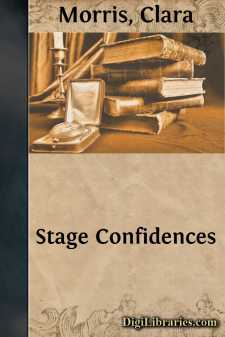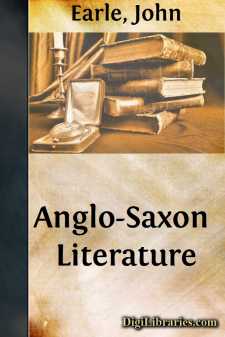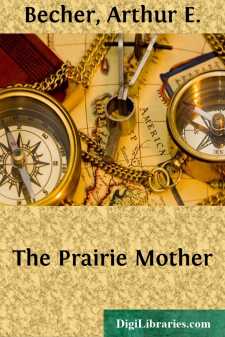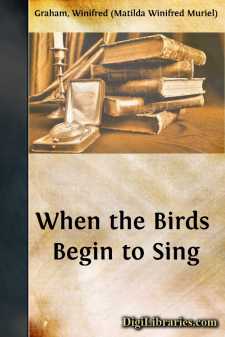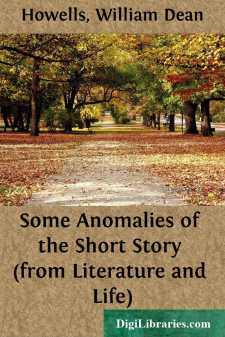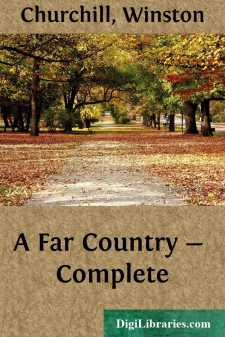Literary Collections
- American 84
- Ancient, Classical & Medieval 14
- Asian 1
- Australian & Oceanian 1
- Canadian 55
- Continental European 121
- English, Irish, Scottish, Welsh 179
- Essays 160
- General 24
- Letters 46
- Middle Eastern 1
Literary Collections Books
Sort by:
BRITANNIA. I. The people that now occupies England was formed, like the French people, by the fusion of several superimposed races. In both countries the same races met and mingled at about the same period, but in different proportions and under dissimilar social conditions. Hence the striking resemblances and sharply defined contrasts that exist in the genius of the two nations. Hence also the...
more...
by:
Clara Morris
CHAPTER I A WORD OF WARNING Every actress of prominence receives letters from young girls and women who wish to go on the stage, and I have my share. These letters are of all kinds. Some are extravagant, some enthusiastic, some foolish, and a few unutterably pathetic; but however their writers may differ otherwise, there is one positive conviction they unconsciously share, and there is one question...
more...
by:
John Earle
CHAPTER I. A PRELIMINARY VIEW. Anglo-Saxon literature is the oldest of the vernacular literatures of modern Europe; and it is a consequence of this that its relations with Latin literature have been the closest. All the vernacular literatures have been influenced by the Latin, but of Anglo-Saxon literature alone can it be said that it has been subjected to no other influence. This literature was nursed...
more...
by:
Arthur E. Becher
The Prairie Mother Sunday the Fifteenth I opened my eyes and saw a pea-green world all around me. Then I heard the doctor say: “Give ’er another whiff or two.” His voice sounded far-away, as though he were speaking through the Simplon Tunnel, and not merely through his teeth, within twelve inches of my nose. I took my whiff or two. I gulped at that chloroform like a thirsty Bedouin at a...
more...
Introduction My aim in this little book has been to give short sketches and estimates of the greatest modern English writers from Macaulay to Stevenson and Kipling. Omissions there are, but my effort has been to give the most characteristic writers a place and to try to stimulate the reader's interest in the man behind the book as well as in the best works of each author. Too much space is devoted...
more...
CHAPTER I. She was certainly very pretty, and just then she looked prettier than usual, for the sharp run had brought a more vivid colour to the cheek, and an added sparkle to the eye. She was laughing, too—the rogue—as well she might, for had she not brought her right hand swiftly down upon his left ear when he had chased her, caught her, and deliberately and maliciously kissed her, and did he not...
more...
One of the most amusing questions concerning the short story is why a form which is singly so attractive that every one likes to read a short story when he finds it alone is collectively so repellent as it is said to be. Before now I have imagined the case to be somewhat the same as that of a number of pleasant people who are most acceptable as separate householders, but who lose caste and cease to be...
more...
by:
Eliot Gregory
There existed formerly, in diplomatic circles, a curious custom, since fallen into disuse, entitled the Pêle Mêle, contrived doubtless by some distracted Master of Ceremonies to quell the endless jealousies and quarrels for precedence between courtiers and diplomatists of contending pretensions. Under this rule no rank was recognized, each person being allowed at banquet, fête, or other public...
more...
My name is Hugh Paret. I was a corporation lawyer, but by no means a typical one, the choice of my profession being merely incidental, and due, as will be seen, to the accident of environment. The book I am about to write might aptly be called The Autobiography of a Romanticist. In that sense, if in no other, I have been a typical American, regarding my country as the happy hunting-ground of...
more...
by:
William Carleton
CHAPTER I. One evening in the beginning of the eighteenth century—as nearly as we can conjecture, the year might be that of 1720—some time about the end of April, a young man named Lamh Laudher O'Rorke, or Strong-handed O'Eorke, was proceeding from his father's house, with a stout oaken cudgel in his hand, towards an orchard that stood at the skirt of a country town, in a part of the...
more...



